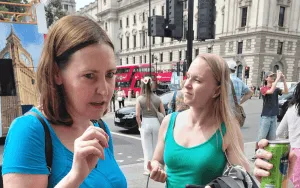The government’s continuing failure to allow shielding MPs to take a full part in the business of the House of Commons during the pandemic crisis is a “significant backwards step for democratic process”, the equality and human rights watchdog has warned.
The Equality and Human Rights Commission (EHRC) spoke out after the government refused again to allow MPs who are most at risk from coronavirus to take part in Commons debates from their homes.
EHRC’s comments came in the wake of the decision by Jacob Rees-Mogg, the Tory leader of the house, to end the “hybrid” arrangements that allowed some MPs to attend parliament and others to take part in debates and vote online from home.
Following a government climbdown, MPs who are “clinically extremely vulnerable or clinically vulnerable” should now be allowed to vote through a proxy system – arranging for another MP to vote on their behalf – and question ministers and respond to ministerial statements remotely.
But Rees-Mogg is still refusing to allow them to take part in debates, arguing during an emergency debate on Monday that “our physical presence here is important to make democracy work”.
Labour’s Vicky Foxcroft, the shadow minister for disabled people, who is self-isolating because of a long-term health condition and so is not able to attend parliament, has not ruled out taking legal action over the government’s actions.
She told Disability News Service that shielded and disabled people “continue to feel like an afterthought” for the government during the pandemic crisis.
She said: “We had a system in place that worked perfectly well, yet the government chose not to continue with it.
“I really cannot understand this decision.”
As well as being prevented from taking part in debates, she has not yet been told how she will be able to use her proxy vote.
She said the government’s actions were “completely outrageous and not inclusive”.
She added: “Parliament should be leading the way on how workplaces can adapt during this crisis.”
Rebecca Hilsenrath, EHRC’s chief executive, said the government’s move to stop shielding MPs like Foxcroft taking part in debates was “unnecessary and a significant backwards step for democratic process”.
She said: “Effective parliamentary decision-making depends on the broadest perspectives and contributions from all members and all lived experience.
“Members must not be excluded from debates because they, or their family members, are shielding or self-isolating or because of caring responsibilities.”
And she called on parliament to “show leadership to all employers in respecting diversity and inclusivity”.
During Monday’s emergency debate, Rees-Mogg said: “I have every sympathy with members who feel that the constraints of the pandemic prevent them from being able to attend in Westminster.”
But he said he believed that MPs “who participate in the decision-making process of the house ought and need to do so in person”.
And he also added: “We are doing our duty in leading the way. Our constituents will not entertain the notion that we should ask parents to send their children back to school while we choose to remain at home.”
But Tory MP Mark Harper, a former minister for disabled people, said he did not see why shielding MPs could not be allowed to take part in debates from their home.
He said: “I accept that it may be too complicated and simply not possible to enable them to intervene, and they may have to accept that their participation is not quite as it would be if they were here, but I do think it is important that they are at least able to speak in debate, on behalf of their constituents.”
Labour’s Chris Bryant said: “All members should be able to participate, not only in urgent questions, statements and questions, but in all the business of the house.”
He added: “We are one of the oldest parliaments in the world. We should be the best at adapting to modern circumstances and to the difficulties of the moment, not the worst.”
And the Liberal Democrat Alistair Carmichael, who secured the debate, said the government was breaching the principle of “the equality of participation and access to all who are elected to this house”.
He said the government had made “an error of judgment of potentially catastrophic magnitude”.
*For sources of information and support during the coronavirus crisis, visit the DNS advice and information page
A note from the editor:
Please consider making a voluntary financial contribution to support the work of DNS and allow it to continue producing independent, carefully-researched news stories that focus on the lives and rights of disabled people and their user-led organisations.
Please do not contribute if you cannot afford to do so, and please note that DNS is not a charity. It is run and owned by disabled journalist John Pring and has been from its launch in April 2009.
Thank you for anything you can do to support the work of DNS…

 Disabled MP who quit government over benefit cuts tells DNS: ‘The consequences will be devastating’
Disabled MP who quit government over benefit cuts tells DNS: ‘The consequences will be devastating’ Absence of disabled people’s voices from assisted dying bill has been ‘astonishing’, says disabled MP
Absence of disabled people’s voices from assisted dying bill has been ‘astonishing’, says disabled MP Disabled students set to protest over cuts in support
Disabled students set to protest over cuts in support